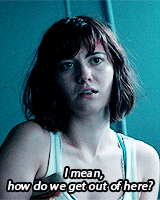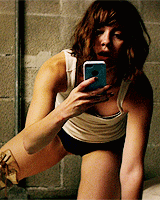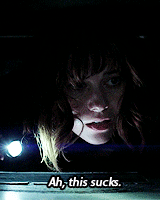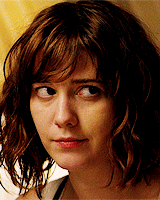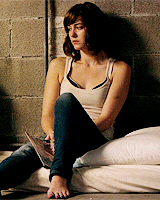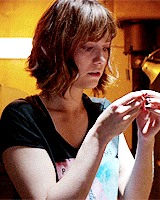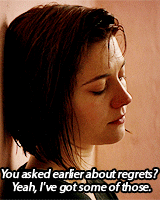live, love, laugh
Интересные размышления про финал:
When Michelle escapes the bunker and finds a new threat waiting, this is partially an extension of the abuse metaphor. For victims of domestic abuse, just getting out of the house doesn’t immediately solve all their problems. For the metaphor to stay sound, 10 Cloverfield Lane needs to acknowledge that finding the courage to leave an abuser doesn’t guarantee a happily-ever-after. For a moment, when Michelle first removes her makeshift gas mask and learns that Howard was wrong about the poisonous air, it seems like the movie might end on a note of relief, and the promise that her problems are over. But that would be facile, and would also mean that Michelle had been in a standard slasher movie, where arbitrarily bad things happen to random people, and nothing much is learned. And that wouldn’t be in keeping with the movie’s actual arc, which is all about the way Michelle comes to terms with her abuse.
Michelle’s problems didn’t start with Howard, and they don’t end with him. They aren’t imaginary, like the toxic threat, and they aren’t just part of some vague general calamity. They’re specific and personal, and they require a specific, personal catharsis. And that’s the primary reason the big, direct confrontation is necessary in the final act.Michelle’s fight against the aliens completes an arc that began in the film’s opening moments, when she abandons her fiancé after a fight. As she tells Emmett later, she’s had experience with abusers. Her father was one, and her childhood fear and helplessness from dealing with him destroyed her courage. She responds to pressure by buckling and running. It’s unclear whether something significant happened with her fiancé that tapped into her memories of abuse, but for the purpose of the larger story, it doesn’t matter. What matters is that she sees her habit of running as a problem, one she’s ashamed of. That’s the problem that needs to be resolved, more than the problem of Howard’s concrete cage or the possibly imaginary apocalypse.
But just escaping Howard doesn’t solve the problem, because Michelle hasn’t really made a choice: She’s been driven by unavoidable circumstances. Her first actual choice, and the resolution of her arc, comes in the film’s final shot, when she decides to drive to Houston, to fight the alien invasion, rather than to Baton Rouge, to hole up in the "safe zone." That’s a definitive ending. But it’s meaningless if she hasn’t already faced off against the aliens, at least enough to understand the stakes, and commit to her decision in a meaningful way. If her only fights have been the ones against Howard that she didn’t choose for herself, there’s no reason to believe she won’t just run again, as soon as she sees how frightening the alien threat is.
Instead, by the end, she’s already faced two aliens, so she knows exactly what she’s getting into by heading to Houston. And it’s the first time her fighting back becomes really meaningful. In the bunker, fleeing initially wasn’t an option, then was the only option. Outside the bunker, the aliens don’t give her a choice any more than Howard did. But both experiences leave her wanting to fight back—and to finally stand up for someone besides herself, like Emmett did, and her brother Colin before him. And even more so, her experiences with both Howard and the aliens have taught her that she has the necessary skills to fight.
www.theverge.com/2016/3/17/11255744/10-cloverfi...
